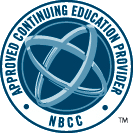Approved Clinical Supervisor Training
The 45-hour program meets all of the content requirements (topics) for a practicing counselor to become an Approved Clinical Supervisor, a credential offered through the Center of Credentialing and Education, as well as content required for the S-level counselor license in many states. The training can also serve as a convenient way to achieve continuing education contact hours.
Contact Us
For content questions, email Dr. L. DiAnne Borders at borders@uncg.edu
For technical assistance, send your requests to Catherine at clparlie@uncg.edu.

The training includes
Instruction from six counselor educators with extensive clinical supervision experience.
Counseling case demonstrations for supervision application
Detailed instruction in multiple clinical supervision models
Supervision techniques including Thinking Aloud, Interpersonal Process Recall, Metaphor, Role Play, Modeling
The entire training costs $549 (the equivalent of only $12 per contact hour!)

benefits
100% online
Work at your own pace and when you have time
Earn 45 contact hour credits
Learn through interactive activities, informative videos, reflective journal prompts, and links to external website resources
Receive technical support throughout the training.
About the Program

Created by the Department of Counseling and Educational Development at the University of North Carolina at Greensboro, (consistently ranked among the top 5 counseling programs nationally by US News and World Report), a 45-hour training that meets the educational requirements needed to apply for the Approved Clinical Supervisor (ACS) credential offered by the Center for Credentialing & Education (a corporate affiliate of the National Board for Certified Counselors).
UNC Greensboro – Department of Counseling and Educational Development has been approved by NBCC as an Approved Continuing Education Provider, ACEP No. 3014. Programs that do not qualify for NBCC credit are clearly identified. UNC Greensboro – Department of Counseling and Educational Development is solely responsible for all aspects of the programs.
- Identifies mental health professionals who have met national clinical supervision standards
- Promotes professional identity, visibility, and accountability
- Encourages professional growth
- Upon completion of this training, you will be able to submit a certificate of proof of 45 hours training towards the ACS credential
- Earn all 45 hours of training in one location, $12 per contact hour! You won’t need to piece together 2 credits here, 4 credits there.
- Work on your own time. You have one full year to complete the training program.
Features of our Training
Each module is led by one of six UNC Greensboro counseling educators, with extensive clinical and supervision research and practice, including Dr. L. DiAnne Borders, author of The New Handbook of Clinical Supervision, required text for the course (for availability, see below). Content is presented through the use of interactive activities, informative videos, counseling case demonstrations, reflective journal prompts and relevant external online resources.
All presenters 1) have a PhD in counselor education and supervision; 2) received supervision training, including supervision of supervision, during their doctoral program; and 3) have supervised both master’s and doctoral practicum and/or internship students. Several also provide supervisor training, supervise practitioners, and/or conduct research on various aspects of clinical supervision.
Presenters:
- Dr. L. DiAnne Borders, PhD, LCMHC, NCC, ACS
- Dr. James. M. Benshoff, PhD, LCMHC, NCC, ACS
- Dr. Craig S. Cashwell, PhD, LCMHC, NCC, ACS
- Dr. A. Keith Mobley, PhD, LMHC, LCMHCS, ACS
- Dr. J. Scott Young, PhD, LCMHC, NCC
- Dr. Jennifer Cannon, PhD, LCPC, NCC, ACS
Training Content
In most cases, the coursework has been completed in less than 4 weeks, but you have up to one full year to complete the training program so you can work at your own pace.
The eleven module topics are the following:
Learning Objectives:
- Provide a structural definition of clinical supervision
- Describe the supervisor’s responsibilities
- Describe/outline how supervision is similar to and different from other roles and activities
- Provide a process definition of clinical supervision
- Understand the factors that influence a supervisor’s assumptions about his/her role
Learning Objectives:
- Describe two models of clinical supervision and how they can inform one’s planning for, conducting, and evaluating supervision sessions
- Explain the components of the discrimination model
- Articulate the developmental sequence of becoming a counselor
- Apply two supervision models for creating an appropriate learning environment within supervision
Learning Objectives:
- Understand how contextual factors inform intervention choice
- Select interventions based on supervisee needs and goals
- Explain limitations of supervisee self-report
- Differentiate the impact of various intervention strategies
- Distinguish between live observation and live supervision
Learning Objectives:
- Describe the similarities and differences between counseling and supervision relationships
- Identify factors that impact the supervisory relationship
- Describe what is and what is not supervisee resistance
- Understand how to intervene with relationship challenges in supervision
- Describe the importance of addressing cultural and gender roles in the supervision process to maximize the processes effectiveness
Learning Objectives:
- Articulate a working definition of group and triadic supervision
- Describe the advantages and disadvantages of (a) group supervision and (b) triadic supervision
- Outline the characteristics of effective supervision with multiple supervisees
- Summarize at least two structured formats for both group and triadic supervision
Learning Objectives:
- Articulate a working definition of the ethical practice of clinical supervision
- Describe effective informed consent when acting as a clinical supervision
- Apply ethical decision making principles to the practice of clinical supervision
- Summarize what effective documentation of clinical supervision entails
Learning Objectives:
- Articulate the importance of the supervisory relationship in effective evaluation
- Explain the importance of developing supervision goals in conjunction with the supervisee
- Outline the range of factors that influence the evaluation process
- Understand how to effectively deliver both formative and summative feedback to a supervisee
Learning Objectives:
- Illustrate the planning process for a supervision session, including what factors are considered in making a plan for the session
- Illustrate “thinking like a supervisor” (vs. counselor) in a supervision session
- Illustrate use of educational/learning theory principles in a supervision session
- Illustrate in-session decision-making during a supervision session around implementing the plan, based on the supervisor’s observations of the supervisee and reflections on her own work
- Illustrate use of the counseling session digital recording as a supervision intervention
- Illustrate use of intentional modeling in a supervision session
- Illustrate parallel process
- Illustrate how a supervision approach in a session is influenced by the supervisee’s personality and learning style
Learning Objectives:
- Determine common mistakes supervisors make and remedies to these mistakes
- Describe how poor session management interferes with a clinical supervision session and what a well-managed session should entail
- Discuss how overreliance on the counselor role inhibits deeper work from occurring in supervision
- Articulate how overreliance on the teacher role shuts down deeper exploration on the part of the supervisees
- Identify how under-reliance on the consultant role limits the supervisor’s possibilities for a deeper supervision session
- Describe the importance of balancing challenge and support to maximize supervisee growth
- Demonstrate the importance of addressing cultural and gender roles in the supervision process to maximize the processes effectiveness
Learning Objectives:
- Identify and apply ethical principles of clinical supervisors to complex scenarios
- Illustrate understanding of responsibilities of supervisors via a comprehensive written professional disclosure statement
- Demonstrate application of best practice standards
- Demonstrate a working knowledge of supervision interventions
- Identify and apply supervision models and interventions to complex scenarios
- Formulate supervision strategies based on supervisee and client presentation
Learning Objectives:
- Define telehealth and why is it important when considering technology in clinical supervision
- Identify current ethics, laws, & HIPAA considerations as well as privacy and security considerations for supervisors to be aware of when utilizing technology in clinical supervision
- Recognize cultural considerations when using technology in clinical supervision
- Learn about useful Apps for conducting clinical supervision
The textbook for the course is The new Handbook of Clinical Supervision (ISBN-13:978-0805853698) by Dr. Borders. It is available through Amazon.
FAQs
Many of your questions about the process of becoming an Approved Clinical Supervisor can be answered by visiting the Center for Credentialing & Education’s website and within the ACS Application Packet.
We would recommend using your desktop computer, laptop or tablet device to participate in this training. You could access the course from your mobile smartphone, but please be advised, due to the number of videos in the training, you would be using a lot of data in viewing them. Most participants have had no issues using Google Chrome, Firefox and Safari browsers.
For technical issues, please contact Catherine Curtis, clparlie@uncg.edu, or call her at 336-265-7243.
You can view a few parts of the training before you register.
- You can see an overview of the training in our promotional video. In this video, you will see a sample of our lectures and supervision demonstrations. (Note. The video refers to a 30 hour program; the program is actually 45 hours.)
- You may also view the course tutorial. This video will explain each aspect of the training, including how the course is presented and how you will be assessed.
The training is divided into 11 modules:
- Roles and Functions of the Clinical Supervisor
- Models of Clinical Supervision
- Supervision Techniques and Interventions
- Supervisory Relationship, Process, and Cultural Dynamics
- Supervising Multiple Supervisees (i.e., triadic and group supervision)
- Ethical and Legal Issues in Clinical Supervision
- Evaluation of Supervisee Competence
- Learning to Think Like a Supervisor
- Supervision Pitfalls and Remedies
- Best Practices in Supervision
- Use of Technology in Clinical Supervision
The modules range in length. Some have five or six sections, while the longer modules have up to 15 sections.
No, you can complete modules on your own schedule and when you have time. There is no due date for assignments. You have one full year to complete the training program.
You can purchase the New Handbook for Counseling Supervision (ISBN13: 9780805853698) through Amazon.com. Both the first (2005) and second (2022) editions of the book include required readings for the course.
The Approved Clinical Supervision training costs $549. You can pay for the training through our UNCG Professional Development Online Store using a major credit card.
Our training will provide you with 45 contact hour credits. Upon completing the training, you will be emailed a certificate of completion that you can include in your application for your ACS credentialing.
Ethical and Legal Issues comprise 4.25 hours of the training program. Two hours of the training program are devoted to Cultural Dynamics (multicultural supervision). Also available are two separate training modules, Broaching Multicultural and Identity Issues in Clinical Supervision, created by Dr. Connie Jones (10 contact hours) and Using Interpersonal Process Recall in Clinical Supervision to Enhance Supervisees’ Multicultural Awareness, created by Dr. Nathaniel Ivers (10 contact hours).
At this time, modules are only available as part of the complete training package.
Yes, these contact hours can be applied to other certifications or credentialing. You may take this training solely for the purpose of earning the contact hour credits. You should also check with your certifying or licensing organization regarding their specific requirement for contact hours.
Enrollment for this training is on a rolling basis (it is always being offered) so there is no deadline for enrollment.
This training is entirely self-paced. You work on the modules when you have time in your schedule. There are no online meeting dates or times.
The exam at the end of each module has been designed so that you can take it as many times as you need to in order to achieve the minimum passing score of 90% correct.
When you pass the last test (Module XI: Use of Technology in Clinical Supervision), the training completion section will appear on your Moodle page. In that section, you will find your certificate for 45 contact hours. After you have your certificate, you can include it as part of your ACS Application Packet.
For questions about the ACS credential and application, please contact the Center for Credentialing & Education by email: cce@cceglobal.org or at 336.482.2856.
Four additional training modules are available:
- Adopting a Trauma-informed Lens in Clinical Supervision, created by Dr. Carolyn Knight (15 contact hours).
- Broaching Multicultural and Identity Issues in Clinical Supervision, created by Dr. Connie Jones, is available (10 contact hours).
- The Use of Motivational Interviewing in Clinical Supervision, created by Dr. Edward Wahesh (10 contact hours).
- Using Interpersonal Process Recall in Clinical Supervision to Enhance Supervisees’ Multicultural Awareness, created by Dr. Nathaniel Ivers (10 contact hours).